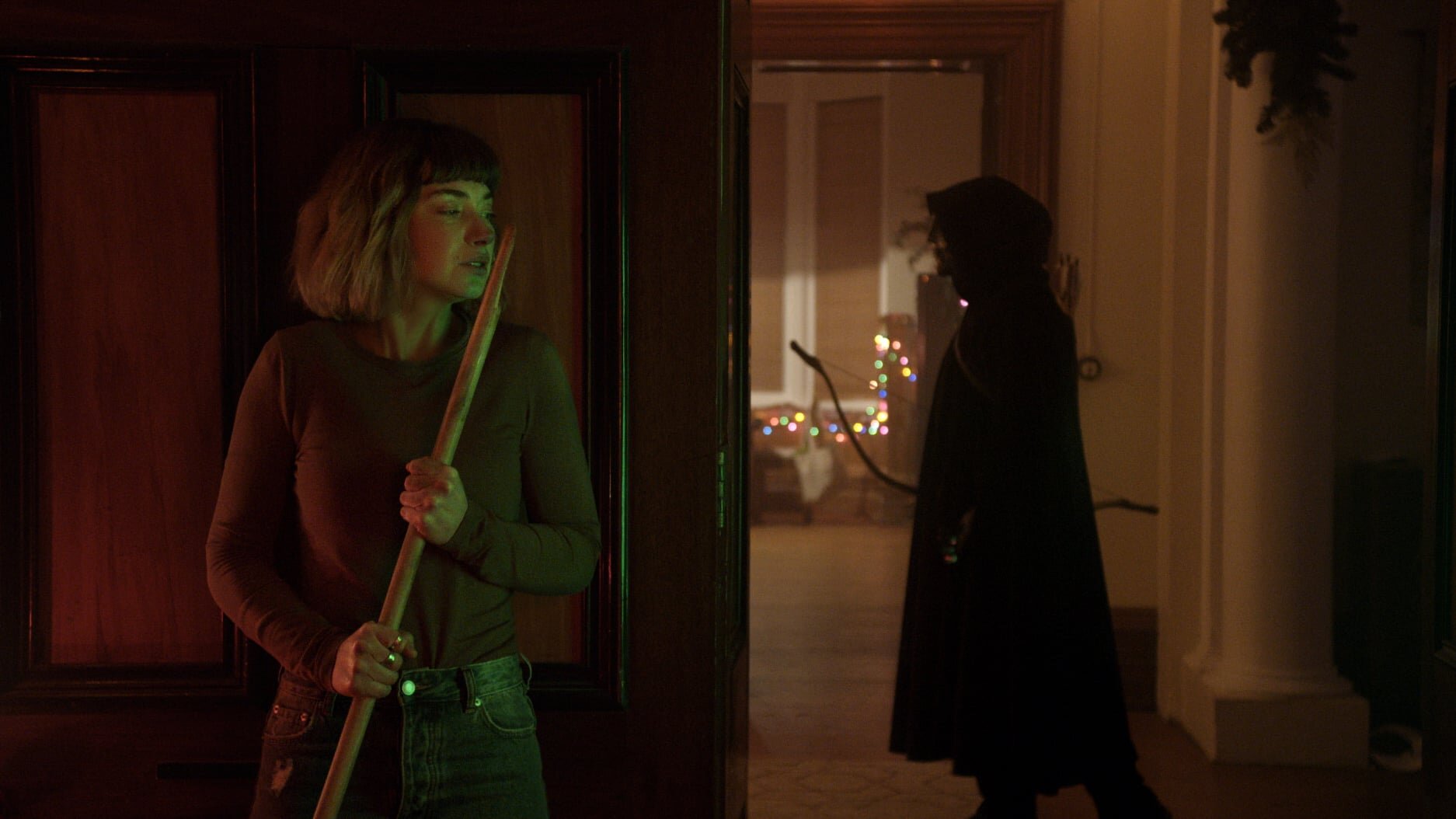Black Christmas
BLACK CHRISTMAS © 2019 Universal Studios.
Sophia Takal's Black Christmas is the third official remake of Bob Clark's monumental 1974 horror film of the same name that famously went on to be the influence behind John Carpenter's Halloween in 1978. Takal's film, however, is a disappointing and lifeless entity that has a profound and engaging conversation on socially conscious feminism and rape culture but unfortunately underwhelms the film’s main attraction of spills and chills.
The horror here is unequivocally dull, falling flat in several sequences that fail to both fright and excite when the film explores gore or suspense. Nothing is entirely predictable but there is no visual prowess or distinctive quality to set this apart from the crowd. There is no little moment that sparks any kind of unique identity, no unbroken take like the one found in Halloween 2018 or a distinguishable set-piece found in Strangers: Prey at Night. There are multiple moments and opportunities to inject flair from editor Jeff Betancourt and cinematographer Mark Schwartzbard of which come up far too short.
The performances are equally as stuffy and underwhelming. Imogen Poots continues her ongoing trend of being wasted in the lead role of Riley and Black Christmas wastes all her exceptional talent in a drastically reduced emotional complexity. Much of the character’s emotional weight and trauma are at the forefront of the film — particularly the first and second act — only to be cast away and drowned in genre convention during the film’s abrasive third act. Contextually, this does work as the film progresses and Poots’s character grows and adapts but the conviction is not here to suggest this attribute is conscious.
The supporting cast is given less material to work with and evolve. Nobody stands out from the crowd aside from Lily Donoghue's Marty and Simon Mead's Nate, a dynamic that feels authentic and organic to their circumstance, but this dynamic ultimately becomes redundant. Carey Elwes pops up here and there in a performance that is best described solely as "teacher creep" rather than a full-fledged character.
The most polarising and controversial aspect of Black Christmas is the on-the-nose and subtextual rape and woke analogy that writer-director Sophia Takal and co-writer April Wolfe have implemented. This attribute will undoubtedly cause a stir but in fact, it’s the film’s most influential and defining element. It fits and undeniably elevates this ordinarily dull horror into something with a strong underbelly and purpose. Think along the lines of the subtle nuance of the immigrant subtext of horror icons of the 1930s Universal with Dracula and Frankenstein but with a socially conscious twist in the Time’s Up and #MeToo movement.
Black Christmas is released December 12th 2019


